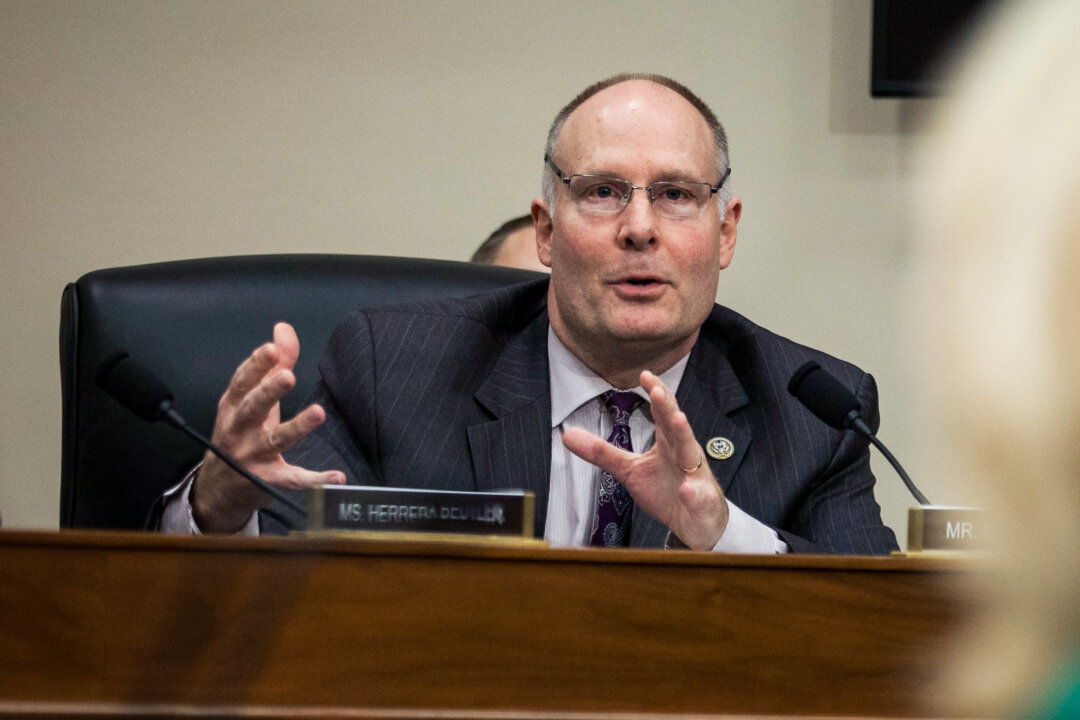‘Many of these companies even appear to engage in activities that violate existing U.S. sanctions against Iran.’
The chairman and GOP members of a House committee have asked the Biden administration to investigate six state-owned Chinese companies for their alleged ties to sanctioned Iranian industries.
In a letter dated May 31 to Treasury Secretary Janet Yellen, Rep. John Moolenaar (R-Minn.), chairman of the House Select Committee on the Chinese Communist Party, and the committee’s GOP members raised concerns over six Chinese firms that allegedly support Iran’s military and energy sectors.
The lawmakers cited reports that U.S. investment firms have invested billions of dollars in these Chinese companies.
In its April report, the committee found that U.S. investment firms, notably MSCI and BlackRock, have facilitated investments of more than $6.5 billion into 63 Chinese companies. These companies have been flagged or blacklisted by the U.S. government for enhancing China’s military capabilities or for their involvement in human rights abuses.
“Many of these companies even appear to engage in activities that violate existing U.S. sanctions against Iran,” the letter reads. “As a result, U.S. retirees are likely indirectly funding activities that run counter to U.S. national security and international stability.”
The companies under scrutiny are leading firms in China’s weapons, aviation, ocean shipping, and petroleum industries. These include China North Industries Group (Norinco), Aviation Industry Corporation of China (AVIC), China Ocean Shipping, China National Offshore Oil Corp. (CNOOC), CRRC Corporation Ltd., and China Petroleum and Chemical Corp. Of these companies, four are on the U.S. trade blacklist.
The lawmakers have listed details of these companies’ involvement in Iran’s defense and energy industries. Two Chinese firms, Norinco and AVIC, have allegedly provided weapons to Iran, and China Ocean Shipping allegedly transports oil from Iran to China.
In addition, the lawmakers alleged that CNOOC subsidiaries have been involved in projects with the U.S.-sanctioned National Iranian Oil and that Sinopec helped Tehran develop the first phase of an oil field in Iran and may still be involved in the later phase of the project.
“The United States must counter the new authoritarian axis spearheaded by [China] and Iran and penalize those [Chinese] companies that help fund Iran’s activities to support Houthi attacks on commercial shipping in the Red Sea and stoke attacks against Israel by Hamas, Hezbollah, and Palestinian Islamic Jihad—all Specially Designated Nationals by Treasury,” the lawmakers said.
They have requested that the Treasury Department investigate these companies and provide analyses of their activities to determine whether they violate U.S. sanctions against Iran.
Close Ties to Iran
A January report from the Prague Security Studies Institute found that 40 Chinese publicly traded companies are allegedly strategically tied to Iran’s military or energy industry, with at least $6.2 billion from U.S. investment firms.
These companies were involved in multiple Iranian sectors, including military, communications and surveillance, oil and gas, and infrastructure.
“These findings raise a number of pressing questions regarding the due diligence and material risk disclosures performed by the respective U.S. asset managers and index providers, not to mention the woeful level of fiduciary responsibility,” the report noted.
Because of Western sanctions, Iran relies heavily on China for its oil exports, the main revenue of the Tehran regime. China is Iran’s largest trading partner, representing 36 percent of Iran’s exports in 2022, mainly from oil.
“While Iran is ultimately responsible for much of the region’s ongoing bloodshed, its destructive and subversive capacity is magnified by Chinese support,” the report concluded.
Legislation Efforts to Restrict US Investment in CCP-Backed Firms
U.S. lawmakers have introduced congressional measures to prevent and track U.S. investments in Chinese companies that help the Chinese Communist Party (CCP) strengthen its military.
In November 2023, Sens. Bob Casey (D-Pa.) and Rick Scott (R-Fla.) introduced legislation that requires U.S. investment firms to disclose their private equity, hedge funds, and venture capital investments in foreign adversaries, such as China, to enhance transparency of how U.S. dollars are invested.
In June 2023, then-Rep. Mike Gallagher (R-Wis.) and Rep. Jim Banks (R-Ind.) introduced the “Protecting Americans’ Retirement Savings Act,” which restricts private pension funds from making future investments in firms from foreign adversaries such as China. The bill also requires these investment funds to disclose current investments in such entities.
In July 2023, Mr. Casey and Sen. John Cornyn (R-Texas) introduced the “Outbound Investment Transparency Act.” The legislation requires U.S. firms to notify the Treasury Department if they have investments in Chinese firms with sensitive technologies, including semiconductors, artificial intelligence, quantum computing, and hypersonics.

